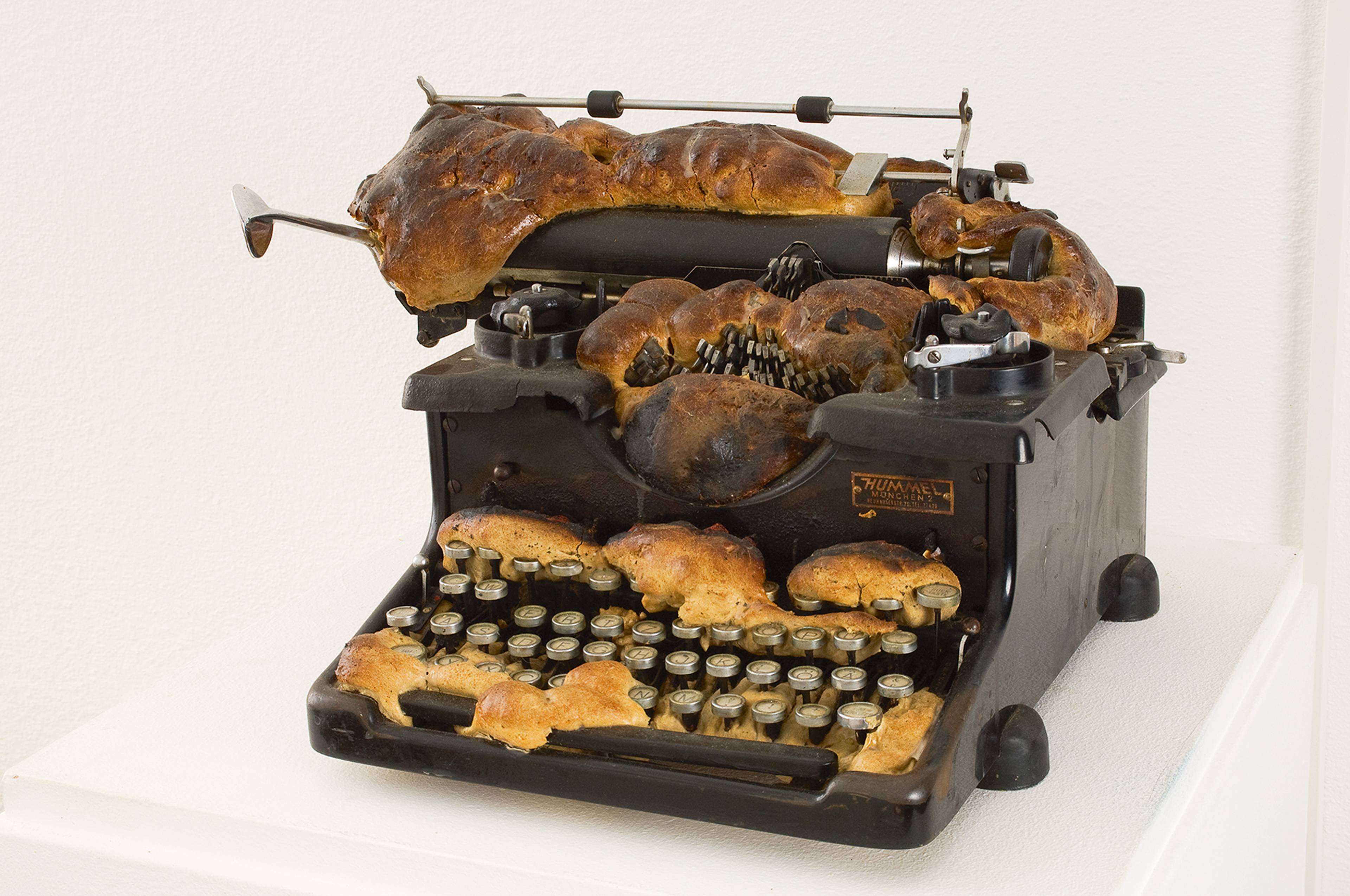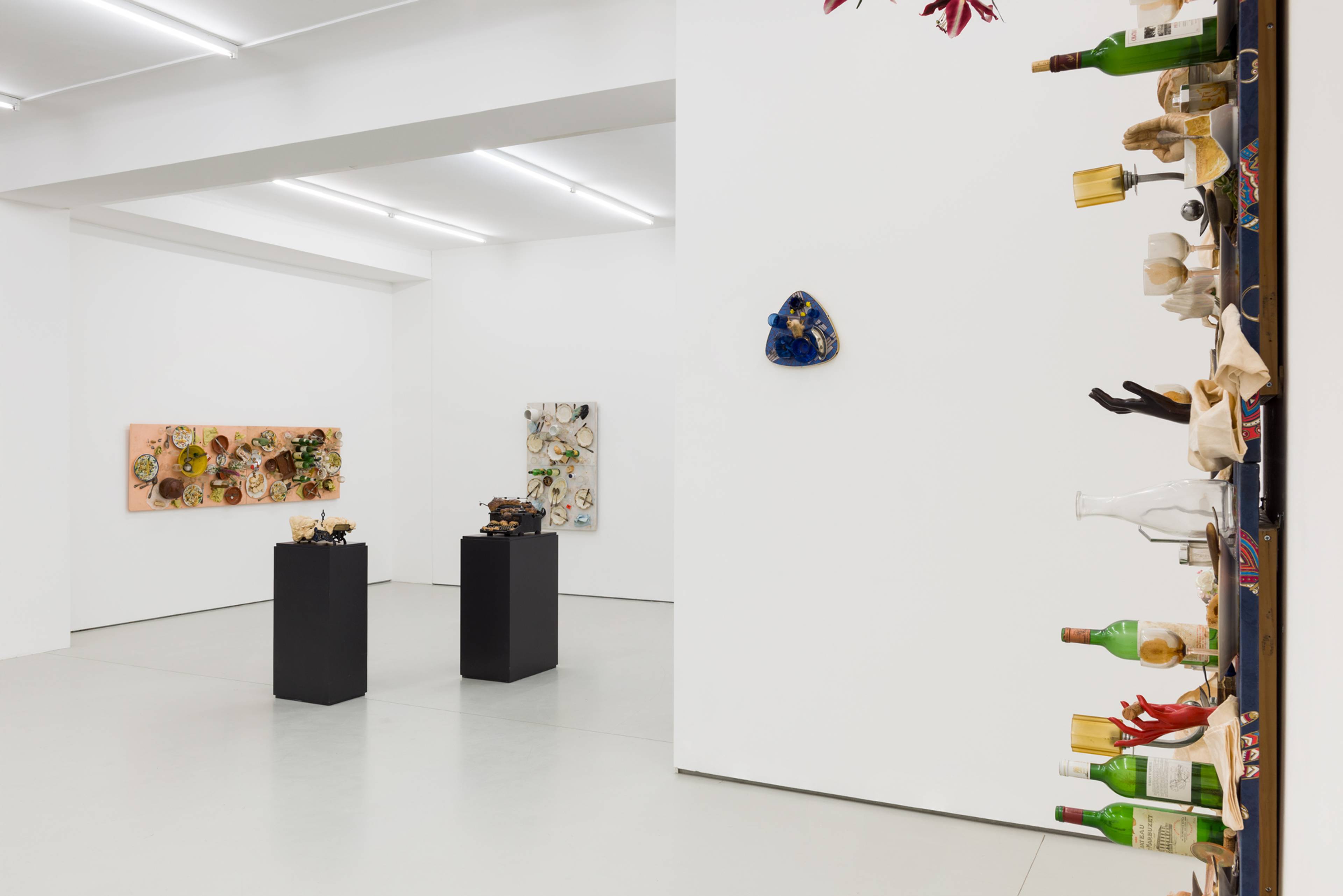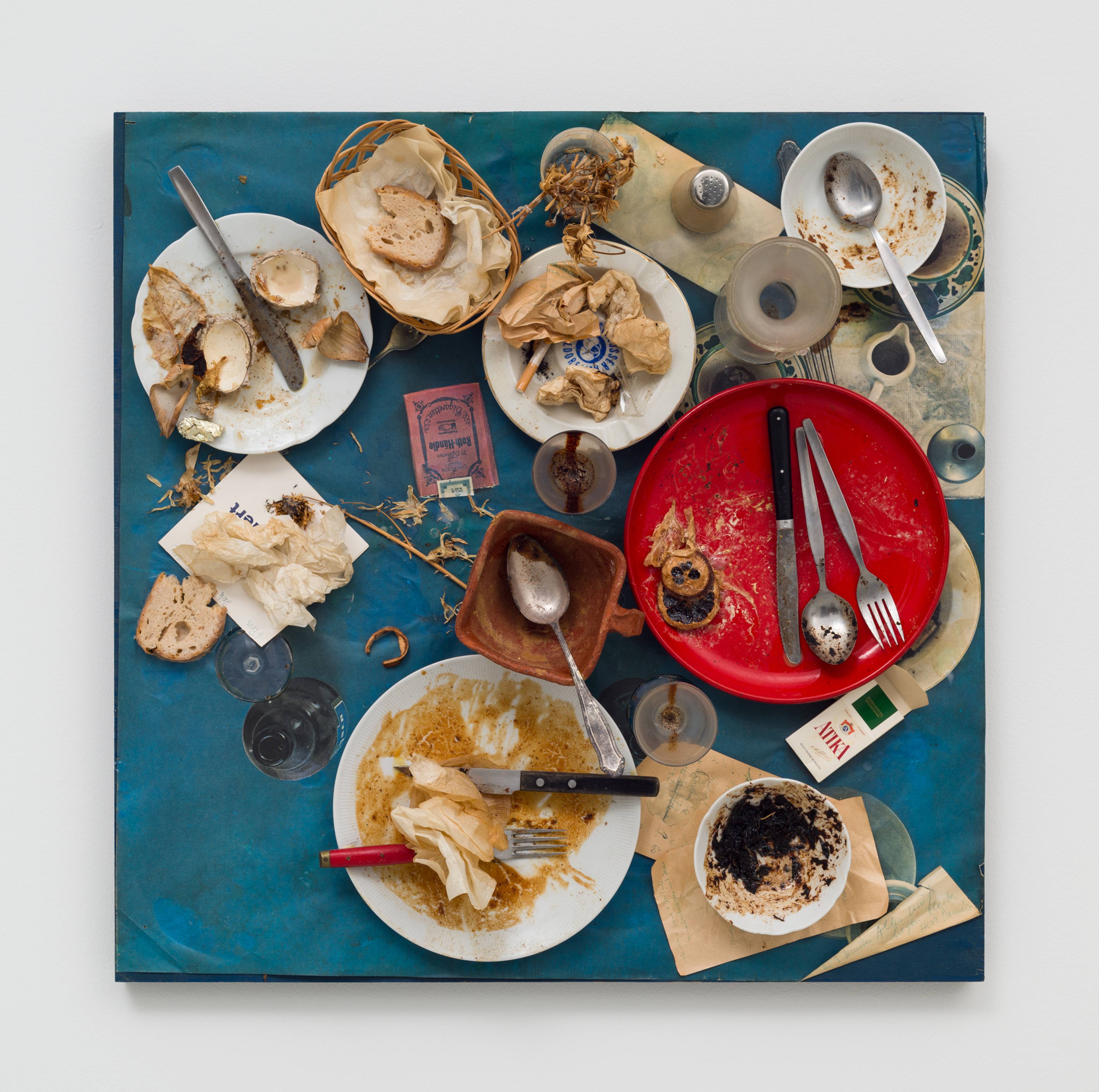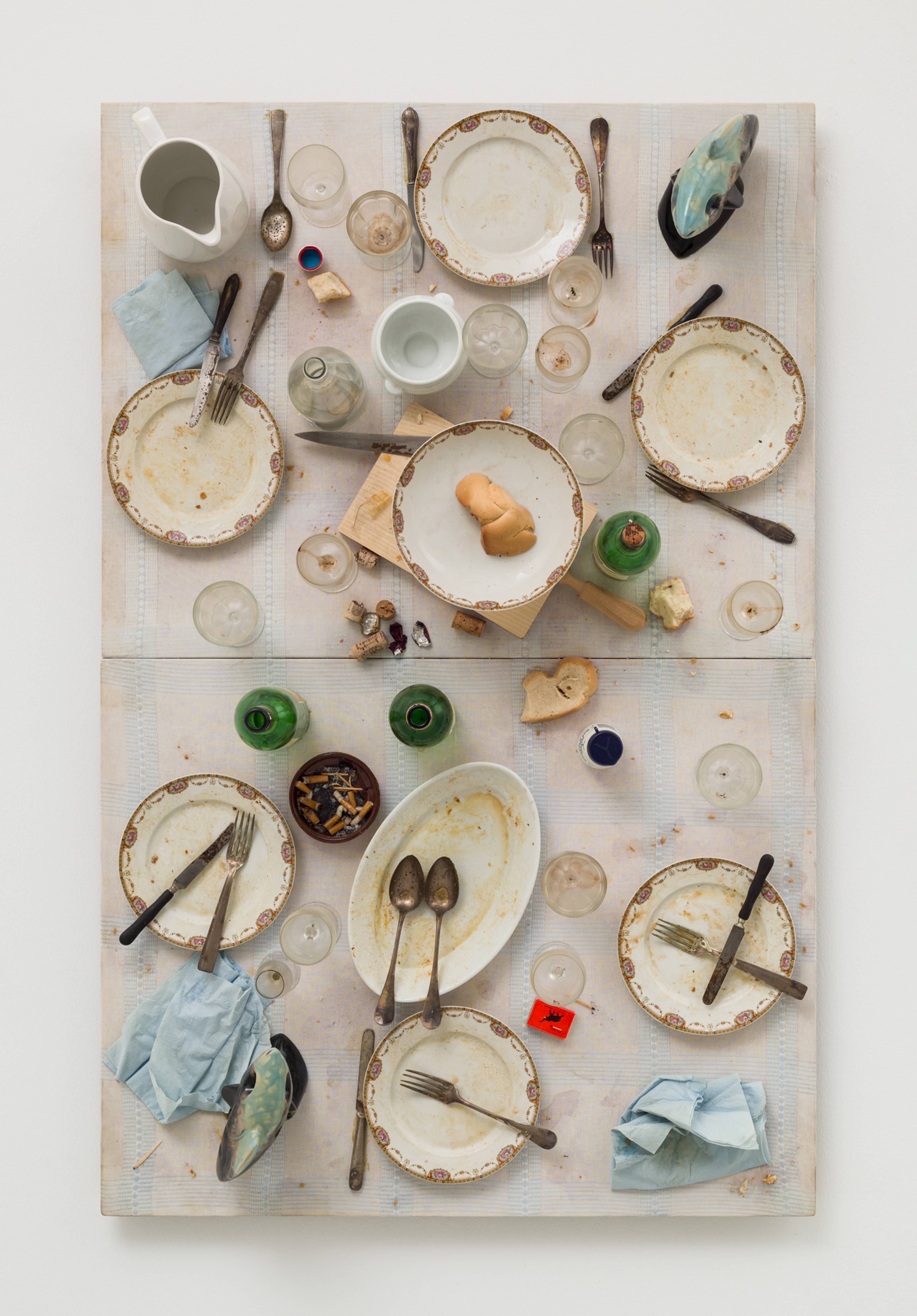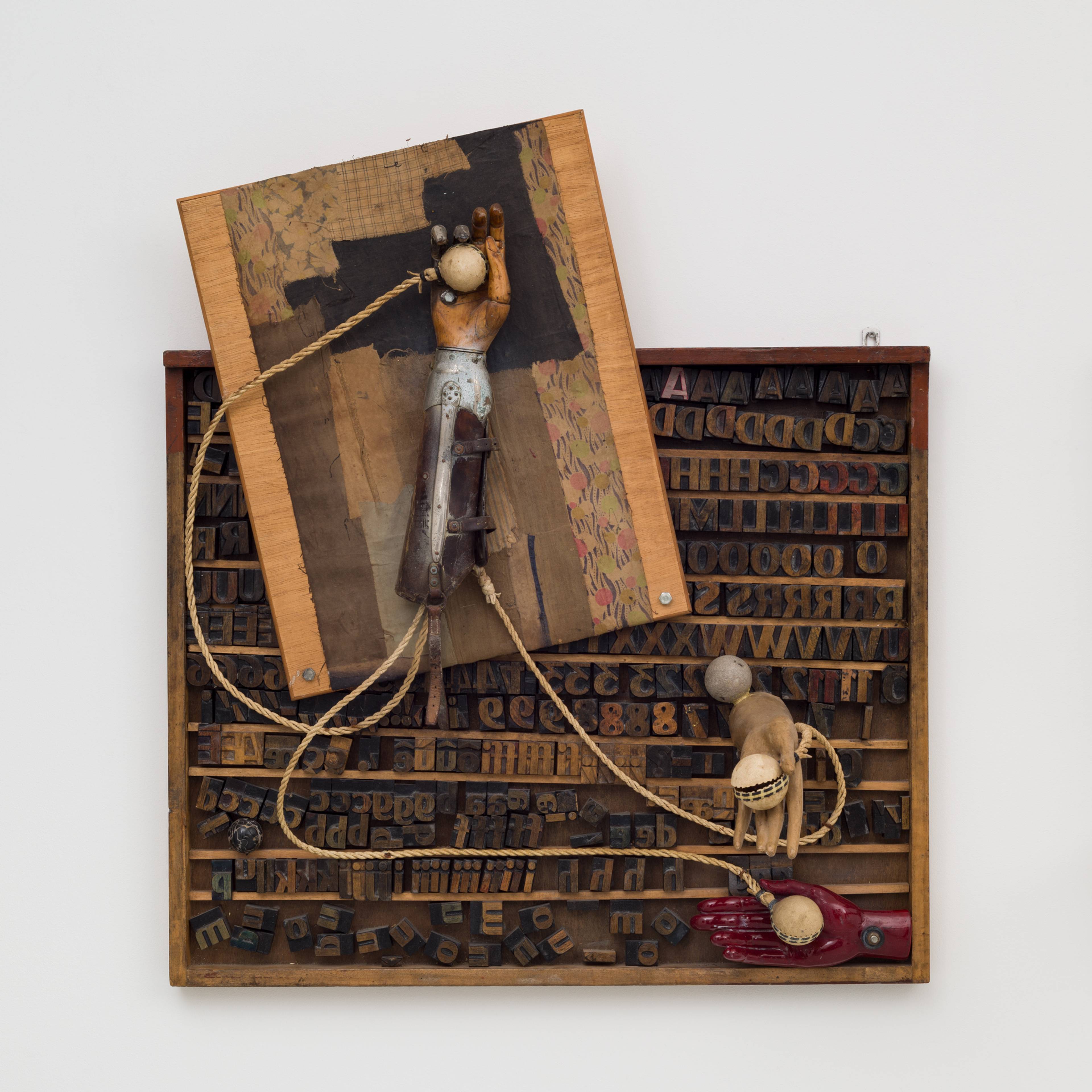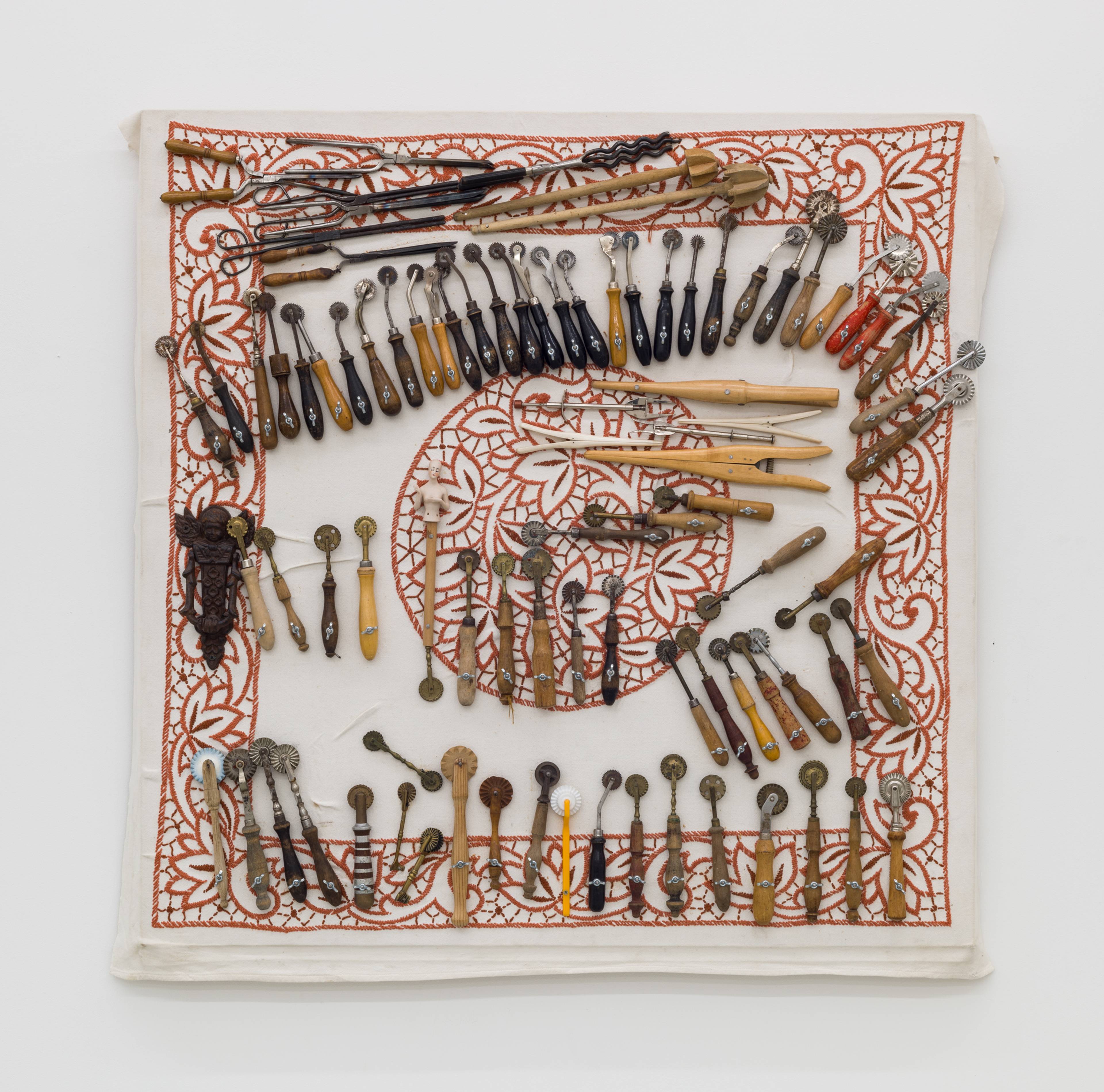Daniel Spoerri (1930–2024) lived several lives. In his twenties, the Romanian was a noted ballet dancer in Switzerland, then a stager of plays by avant-garde dramaturges, then founder of an editions venture (wherein he apparently coined the term “multiples”). By 1960, he’d established a signature artistic style within the nascent French Nouveau Réalisme through meticulously glueing down every element of his girlfriend’s morning repast – soiled bowls, tins, cigarette butts, etc. – exactly where it sat on a plank-like little table, adhering that to a chair, rotating the whole through ninety degrees and hanging it, like a painting, on the wall. An instant aleatory composition made from and brimming with traces of life lived, Kichka’s Breakfast I (1960), which MoMA owns, isn’t included in an exhibition celebrating what would have been Spoerri’s 95th birthday. But plenty of other, similarly quotidian assemblages are. The earliest here, Why don’t you live with me (1963), perhaps wryly answers its own question: It looks like an off-cut from a chaotic slob’s workshop, a dark square cluttered with plastic fruit, a coat hanger, an ashtray, multiple pairs of spectacles, ticket stubs, a baking tray, a metal tap, et al.
View of “No Friend of Stagnation,” alexander levy and LEVY Galerie, Berlin, 2025
By Aktion Restaurant Spoerri, 6. Juni 1972 (1972), made four years after Spoerri opened an eponymous eatery in Düsseldorf that aimed at collapsing alimentary experience into art (New York only got Gordon Matta-Clark’s FOOD in 1971), matters were swinging more elegantly minimalist. On a deep blue tabletop, airily spaced, sit used white and yellow crockery, a wine bottle and glasses, some cutlery, and a picked-clean corncob. Such “frozen” meals are the throughline of this show (the first of two parts), with variations dating up to 1992’s Sevilla Serie Nr. 30 mit 2 Porzellanfischen (Seville Series No. 30 with Two China Fishes), a constellation of circles – plates, ashtrays, glasses – surreally bracketed by two little green ceramic fish, which appear to burst through the table at upper right and lower left. Everything’s so satisfyingly placed, you might suspect a little aesthetic tinkering at meal’s end; you also wonder how relaxed the diners could be if they knew themselves to be co-composers of Spoerri’s art – not that uptight dinners are rare in the art world.
Aktion Restaurant Spoerri, 16. November 1972, 1972, assemblage on fiberboard, 70 x 70 x 40.5 cm
Sevilla Serie Nr. 30 mit 2 Porzellanfischen, 1992, assemblage, 186 x 80 x 40 cm
If “No Friend of Stagnation” performs adequate service, as it were, for admirers of Spoerri’s foodie art, it also varies its menu and its registers. A fair bit of his early work bears comparison, presumably due to a shared interest in Fluxus, with the Funk Art being produced on the US West Coast around the same time. See the claustrophobic, gothic Tête de cire brulée (Burnt Wax Head, 1964), a creamy, hair-accoutred wax bonce, not evidently burnt but stuffed, face-up, into a glass-windowed wooden box, a waxen hand pressing down on it. Later, for the indelible, anarchic Brotteigobjekt – Schreibmaschine (Bread Dough Object – Typewriter, 1980), Spoerri appears to have shoved bread dough into the keys and carriage of a German typewriter and put it in the oven; scorched bread rises monstrously from it. What this might say about existing language and the possibility of new argots and vocabularies is left to the viewer, who might usefully align this work with several wooden assemblages, e.g., Histoires de Boîtes à Lettres III (Histories of Letterboxes, 1998), its typesetting trays full of wooden letters, obliquely augmented by mannequin hands holding baseballs.
Spoerri appears to have been fascinated by what’s encoded in material goods, by what they say about us. Three works entitled Darwins Nudl Radl Collection (Darwin’s Pasta Wheel Collection) glue onto different supports a tidy range of wheeled, serrated pasta cutters, a literalization of the artist’s claim that “the Darwinian principle of evolution can be seen in people’s efforts to constantly change and improve things.” Like leftover meals, all of this amounts to a metonymic tracing of human activity and evolving culture, both inventive and haphazard, and you can perhaps zoom out a long way from a single, easily disregarded thing, like soiled crockery: from the need to keep ourselves alive, to the complex dynamics of preparing and sharing meals, to the mutable codifications of art itself.
Histoires de Boîtes à Lettres III, 1998, assemblage, 97 x 85 x 41 cm
Darwins Nudl Radl Collection, 2009/2010, assemblage, 101 x 100 x 8 cm
In the basement, in an eight-minute, black-and-white, 16mm collaboration with filmmaker Tony Morgan, Spoerri tracks back in a surprising manner to where food comes from. Resurrection (1968) features scenes of cows in fields, cows in abbatoirs, flanks of beef, butchers doing their work. But, its footage has been organized as life-to-death and then run backwards, so that shots of beef become shots of cows springing back to life after being killed, then returning to the fields, with cowpats flying up from the grass and back into cows’ asses. Comically earthy, it also feels underscored with spiritual potential – with sacred cows. You can dramatically dilate and elevate the potential meaning of anything, Spoerri reminds us once again; it’s all in the presentation.
___
“No Friend of Stagnation”
LEVY Galerie and alexander levy, Berlin
28 Feb – 16 Apr 2025


